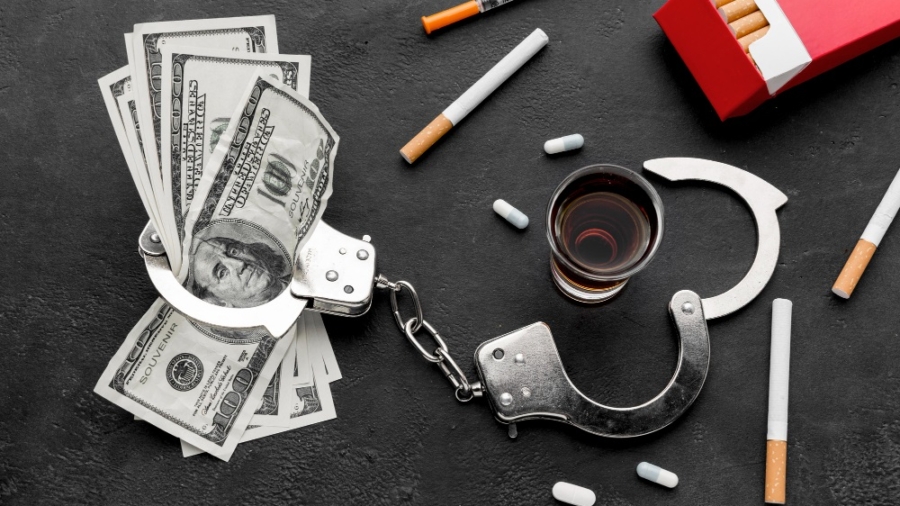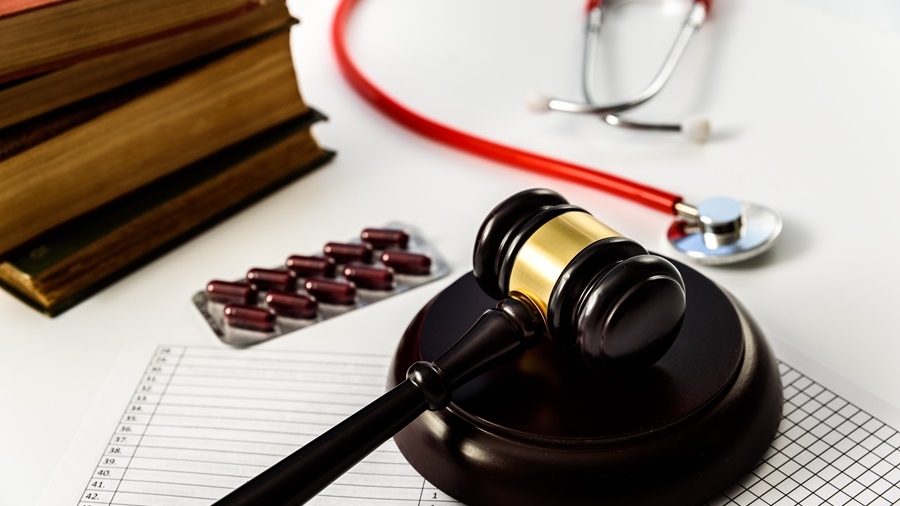Drug Crime Lawyer
Drug crimes have severe penalties in Louisiana. A drug conviction can have a significant negative influence on your life. It might result in job loss, make it challenging to find new employment, or even cause you to lose custody of your children. These are only a handful of the legal consequences of felony drug convictions. When selecting a drug crime lawyer who can adequately manage your drug case, you must pick one who is skilled, informed, and reliable. Here’s where David E. Stanley, APLC’s drug crime attorney, may assist you.
Consult a Drug Crime Lawyer
Call David E. Stanley, APLC
The Factors to Consider When Hiring a
Drug Crime Lawyer in Louisiana
When hiring a drug crime lawyer in Louisiana, several vital factors should be considered to ensure you secure the proper legal representation for your case. Louisiana, like many states, has stringent drug laws, and navigating through legal complexities requires expertise. Here are the key considerations that can guide you in making an informed decision when selecting a drug crime lawyer.
-
Experience and Expertise
One of the paramount factors to consider is the lawyer’s experience handling drug crime cases. Look for a criminal defense lawyer who is focused on drug-related offenses. This expertise is vital as drug cases can involve intricate legal issues, including search and seizure laws, evidence admissibility, and understanding the specific drug statutes in Louisiana.
-
Knowledge of Louisiana Drug Laws
Louisiana has its own set of drug laws that can vary from federal regulations. A knowledgeable drug crime lawyer should be well-versed in state and federal drug laws to build a robust defense strategy. Understanding the nuances of Louisiana’s Controlled Dangerous Substance (CDS) laws and penalties is essential for effective representation.

-
Track Record of Success
Review the lawyer’s track record in handling drug crime cases. Success in similar cases indicates the lawyer’s competence and ability to navigate the complexities of drug-related legal proceedings. A drug crime lawyer with a history of securing favorable outcomes for clients facing drug charges will likely be better at handling your drug crime case effectively.
-
Client Reviews and Testimonials
Seek feedback from previous drug crime clients to gain insights into the lawyer’s reputation and client satisfaction. Reviews and testimonials can offer good information about the lawyer’s communication skills, responsiveness, and effectiveness in handling drug crime cases.
-
Communication Skills
Effective communication is crucial in legal proceedings. Ensure the drug crime lawyer you choose is knowledgeable and can communicate complex legal concepts clearly and understandably. A drug crime lawyer with solid communication skills will keep you informed about the progress of your case and explain legal options in a way you can comprehend.
-
Availability and Accessibility
Consider the lawyer’s availability and accessibility. Legal matters can be time-sensitive, and having a drug crime lawyer who can promptly respond to your queries and address concerns is vital. Clarify the expected response times and communication channels to ensure understanding.
-
Client-Attorney Privilege
Ensure the lawyer respects and upholds client-attorney privilege. Trust and confidentiality are crucial in legal matters, and a lawyer who values the sanctity of this privilege will create an environment where you can openly discuss details of your case without fear of unauthorized disclosure.
-
Negotiation Skills
Many criminal cases, including drug crimes, are resolved through negotiations. A skilled negotiator can secure a more favorable plea deal or reduced charges. Assess the lawyer’s negotiation skills and ability to work with prosecutors to achieve the best possible outcome for your case.

-
Local Court Experience
Familiarity with Louisiana local court procedures and personnel can be advantageous. A lawyer with experience in Louisiana’s court system may have insights into local judges, prosecutors, and court practices, potentially influencing the outcome of your case.
Hiring a drug crime lawyer in Louisiana demands a thoughtful and thorough approach. Considering the above factors, you can raise your chances of securing competent legal representation tailored to the state’s unique complexities of drug-related offenses. Remember, the right drug crime lawyer can make a significant difference in the outcome of your drug crime case, and investing time in selecting the appropriate legal counsel is a crucial step in safeguarding your rights and future.
Frequently Asked Questions
What Is a Drug Crime Defense Attorney?
A drug crime lawyer can help you present your case effectively and truthfully to obtain the best outcome or sentence possible. Even if you may not be able to ultimately avoid a conviction or guilty plea, getting assistance from someone who can strengthen your case or present mitigating evidence to lower the charge may help you achieve a more favorable outcome or a lighter sentence.
What Do Drug Crime Defense Attorneys Do?
Drug defense attorneys have an extensive understanding of the legal system, allowing them to represent you effectively. Furthermore, a lawyer focusing exclusively on drug charges would undoubtedly know how to act, what to say, and how to behave in court. They will also be able to counsel you on these matters.
What Types of Drug Offenses are Common in Louisiana, and How can a Specialized Lawyer help?
A drug crimes lawyer can help by knowing the specific types of drug offenses that are common in Louisiana. Louisiana deals with various drug offenses, including possession, cultivation, manufacture, distribution, and trafficking. A specialized lawyer can navigate these charges, building a defense tailored to the specific allegations made against you and the particular charges filed by the district attorney.
What Are the Defenses against Drug Crime?
The most common defenses against drug crime are:
- The drug found was the product of an unlawful search and seizure by law enforcement officers.
- The seized narcotics belonged to someone else—perhaps a friend or roommate.
- The material you were found to possess was bunk and not, according to the crime lab analysis, a controlled dangerous substance. .
- The drugs have been lost or destroyed (i.e. the police misplaced them).
Trustworthy Drug Crime Attorney
David E. Stanley devotes time and effort to developing the most comprehensive defenses possible for the benefit of its clients. Mr. Stanley has handled drug cases and can provide the attention, direction, and assistance you need to navigate this stressful procedure. If you need a trustworthy drug crime lawyer, contact David E. Stanley, APLC.
Call David E. Stanley, APLC, at (225) 926-0200 Today
David E. Stanley, APLC
1055 Laurel Street, Suite 2
Baton Rouge, LA 70802
225-926-0200

David Stanley is the founder and principal of David E. Stanley APLC. Since 1983, Mr. Stanley has successfully practiced law from his office in Baton Rouge, Louisiana.









